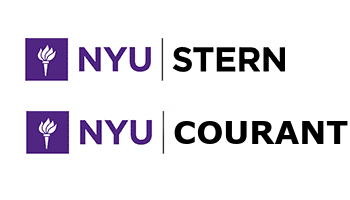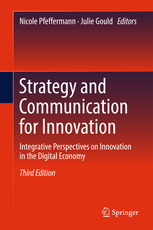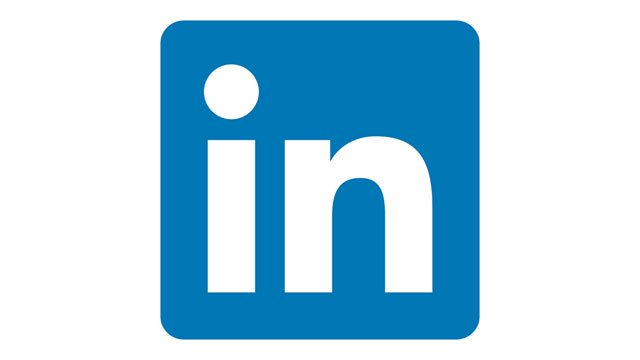Andrew Breen is the principal of Assert Digital Ventures where he acquires & invests in small, cash flow positive digital businesses with growth potential. Using his years of digital product experience, Andrew has grown ADV’s acquisitions significantly to date. In addition, Andrew advises leading companies from startups, investors to Fortune 1000 companies on digital products and transformation. Known for his deep knowledge of the Lean framework, Andrew has significantly restructured the digital products, processes and culture of a range of companies. He is also a professor at both NYU’s Stern School of Business as well as Courant Institute (Computer Science).

He was most recently SVP of Digital for Argo Group (NYSE: ARGO), a multi-billion dollar commercial underwriter where he led the company’s transition to a digital business and oversaw Argo Ventures, their early stage investment fund. His teams leveraged machine learning toward the goal of becoming the fastest and smartest risk assessor. The digital squads implemented a user-centric, hypothesis-driven, iterative test and learn approach on products that amplified Argo’s businesses from zero digital revenue to over $500 million in under three years. The venture fund invested in 10 FinTech startups.
Andrew has 25 years experience developing and growing products and services for companies of all sizes in the mobile, enterprise, e-commerce, finance, media and education sectors. His repeated success as an entrepreneur, technologist, product owner, investor and business development leader is the result of a unique combination of deep technical knowledge, broad interdisciplinary skills, team leadership, and negotiation capabilities.
Formerly, as VP of Product in American Express’s Enterprise Digital business unit, he led a cross functional digital team creating and delivering next generation digital products focused on new customer experiences. His teams built natural language (NLU) AI messaging and predictive algorithmic solutions across mobile and web properties to driving loyalty and satisfaction as well as a 5% increase in top-line revenue.

In 2014, Andrew was appointed as adjunct professor at NYU’s Stern School of Business to develop and teach a graduate level course in technology product management and innovation. Based on his methodology for building digital products and transforming organizations of any size, students learn how to leverage small teams to iteratively build technology products that deliver outcomes for their users. The course is now a core class for Stern’s Tech MBA launched in 2018. In 2019, Andrew was also appointed as adjunct professor at NYU’s Courant Institute teaching a graduate computer science course showing technologists how to use Lean experimentation to turn inventions into businesses.
Previously, Andrew built and grew several tech startups through successful launch, expansion and exits including ThinAirApps (sold to Palm), Interactive Imaginations (sold to form 24/7 Media), EarthWeb (sold to become Internet.com), and Medialets (sold to WPP). As Director of Palm’s Services Product Group, he led the formation and strategic direction of Palm’s wireless data services business. In 2007, he was the lead industry advisor to Harbinger Capital on their $100m investment in Openwave where he engaged the Board and management to reduce product lines, sell non-core businesses, restructure costs, and return over $200m to shareholders. Over his career, he’s been an advisor to Northwestern Mutual, Skype, Credit Suisse and multiple tech startups and investment funds.
Andrew is a regular speaker at technology industry conferences on product development, innovation and organizational design. He is co-author of the 2017 book, Strategy and Communication for Innovation (Springer) addressing the organizational and cultural issues around realizing innovation at scale. In 2020, the next volume in the Springer series includes his chapter on the criticality of vision setting in modern, digital organizations.
Andrew has a dual Information and Decision Systems (concentration in computer science) and Industrial Management (business) degree from Carnegie-Mellon University.
Patents
SYSTEMS AND METHODS FOR CALCULATING TEXT DIFFICULTY
Issued Nov 20, 2014 Patent issuer and number US 20140295384
Disclosed are systems, methods, and products for language learning that automatically extracts keywords from resources using various natural-language processing product features, which can be combined with custom-designed learning activities to offer a needs-based, adaptive learning methodology. The system may receive resources having text and then determine a text difficulty score that predicts how difficult the resource is for language learners based on any number of factors, including any number of semantic and syntactic features of the text. Training resources labeled with metadata may be used to train a statistical model for determining difficulty scores of newly received text. Resources may be grouped based on difficulty score, and groups of resources may correspond to language learners’ proficiency levels.
SYSTEMS AND METHODS FOR GENERATING DISTRACTORS IN LANGUAGE LEARNING
Issued Nov 20, 2014 Patent issuer and number US 20140342323
Disclosed are systems, methods, and products for language learning software that automatically extracts text from resources using various natural-language processing features, which can be combined with custom-designed learning activities to offer a needs-based, adaptive learning methodology. The system may receive a text, extract keywords pedagogically valuable to non-native language learning, assign a difficulty score to the text using various linguistic attributes of the text, generate a list of potential distractors for each keyword related to a resource to implement in learning activities. Distractors may be of various types, which are dynamically selected from a distractor store depending on a learning activity chosen to meet a learner’s needs. Distractors may vary in difficulty, and may be dynamically selected based on a learner’s overall proficiency or based on a learner’s abilities in specific language skills.
LANGUAGE LEARNING SYSTEMS AND METHODS
Issued Nov 20, 2014 Patent issuer and number US 20140342320
A systems, methods, and products for language learning software that automatically extracts text from corpora using various natural-language processing product features, which can be combined with custom-designed learning activities to offer a needs-based, adaptive learning methodology. The system may receive a text, extract keywords pedagogically valuable to non-native language learning, assign a difficulty score to the text using various linguistic attributes of the text, generate a list of potential distractors for each keyword in the text to implement in learning activities, and topically tag the text against a taxonomy based on the content. This output is then used in conjunction with a series of learning activity-types designed to meet learners’ language skill needs and then used to create dynamic, adaptive activities for them.
SYSTEMS AND METHODS FOR EXTRACTING KEYWORDS IN LANGUAGE LEARNING
Issued Oct 2, 2014 Patent issuer and number US 20140297266
Disclosed are systems, methods, and products for language learning that may extract text from various resources having text, using various natural-language processing features, which can be combined with custom-designed learning activities to offer a needs-based, adaptive learning methodology. The system may receive a resource, extract keywords pedagogically valuable to non-native language learning and academic exercises. Metadata describing various aspects of resources from which keywords are extracted may be associated with keywords. Metadata describing various aspects of keywords may also be associated with keywords. Extracted keywords may be stored into a keyword store along with any metadata associated with keywords.

